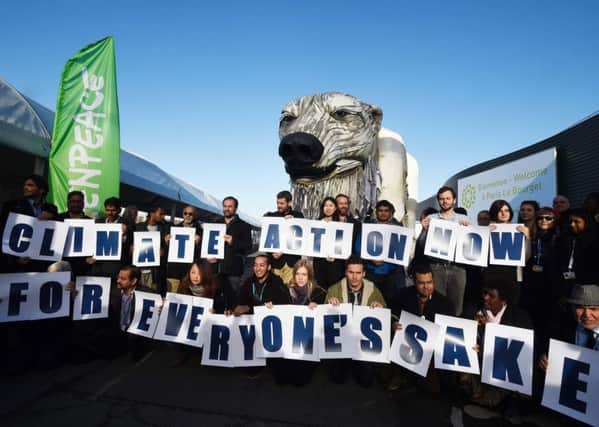Stuart Brown: Climate change threat is not all doom


This week’s COP21 climate change talks in Paris not only illustrate the enormous threat to our planet posed by rising CO2 emissions, but also the massive economic opportunities – for Scotland in particular – afforded by the transition to a future low-carbon economy.
In contrast to the Copenhagen summit six years ago, where some nations were at best reluctant participants, we now see the emergence of the world’s biggest economies – the US, China and India – joining the EU as strong backers of urgent action.
Advertisement
Hide AdAdvertisement
Hide AdThis is not wholly altruistic. All these nations recognise that the first movers in low-carbon technologies can reap significant economic rewards, most notably in the opportunity to commercialise research innovation into industries with high-quality jobs and significant export receipts.
China tops the world tables in solar panel production and has deployed more than 75 gigawatts of onshore wind turbines – dwarfing the levels of activity here in Europe. They have now emerged as a key financial backer of Hinkley Point C – the first of the UK’s proposed new nuclear power plants – and hope to capitalise on EDF’s French know-how (which the UK’s once had) to also build out the remainder of the UK new nuclear fleet. When it comes to energy innovation, getting in early, and lasting the course, is key.
Now is the time to invest, to develop, to expand, and yes, to lead.
• Stuart Brown is chief executive of FloWave